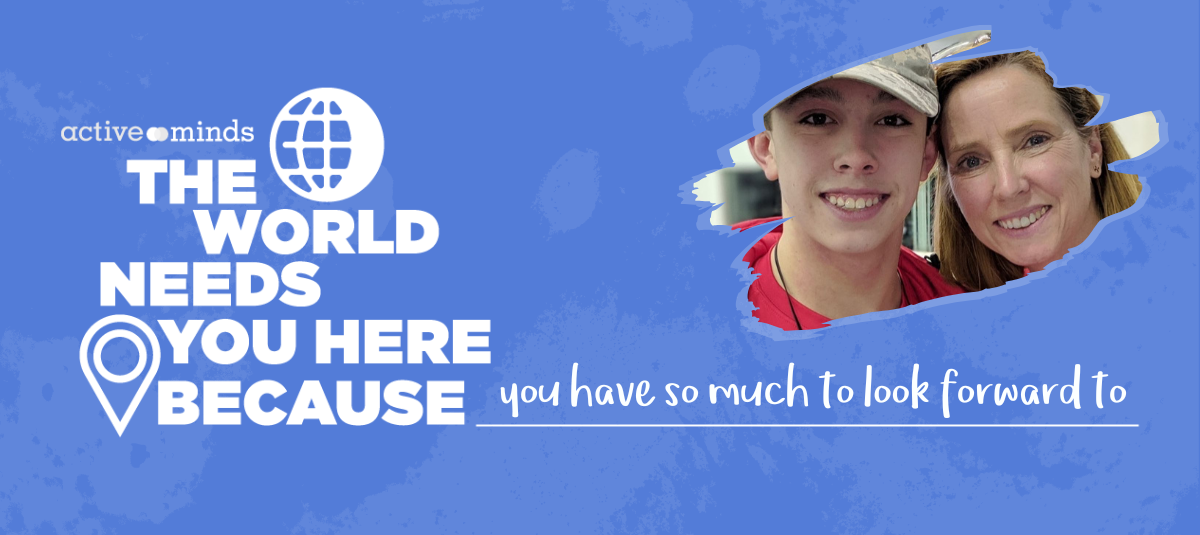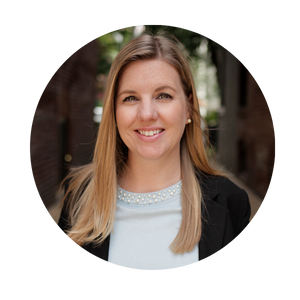Content Warning: This piece contains mentions of suicide.
One of the hardest and most impactful elements of my role with Active Minds is the opportunity to spend time with the families and loved ones of those who have been lost to suicide. Despite the unfortunate circumstances under which we get to know each other, it’s a privilege to get to know them, help them share their loved one’s stories, and partner with them to raise awareness around suicide prevention, sharing the message “The World Needs You Here.” That message is never more important to share than in September, as part of Suicide Prevention Month.
One family that has managed to turn their pain into purpose is that of Langdon Woo. I met Alice, Langdon’s mother, and her family at a fundraiser for Active Minds on Long Island, almost exactly one year after they lost their son Langdon to suicide. Alice described Langdon as a loving son to her and her husband Jeff, a caring older brother to his sister Connolly, and the comic relief on a hard day to his group of friends. This month, Langdon should be starting his senior year of college. Instead, Alice and her family have been mourning their son for just over a year.
When losing someone to suicide, one of the hardest parts is the unknown. Alice shared with us that now, she can only speculate on his internalized thoughts around perfection, his fear of disappointing those around him. She’ll never know exactly what he was struggling with. But, what she does know, and what I can attest to, is that Langdon’s experience is unfortunately not a unique one – people of all ages, backgrounds, and walks of life struggle with their mental health. Some publicly, others silently. And those that suffer silently need our support. We need to talk about mental health, open up the conversation, and remind those around us that the world needs you here.
Suicide is the second leading cause of death among young adults. It’s a real crisis, and if we are going to confront it, we need to talk about it. Some may feel that by talking about suicide, we might “put the idea” in someone’s head, or lead to an increase in suicide inadvertently. This isn’t true. It’s a myth that talking about suicide is dangerous – people who struggle with suicidal ideation want to be heard and validated, but may not know how to share. Initiating this conversation with someone who is struggling can help them share what they’re experiencing and connect them with important resources.
For many of us, even everyday conversations about mental health aren’t always easy. If you feel uncomfortable or nervous, there is a tool you can use: V-A-R®, or Validate-Appreciate-Refer. V-A-R® is Active Minds’ everyday tool for mental health conversations, three easy-to-use steps that help you listen and respond in a meaningful way. Start by validating what someone is sharing – this can sound like, “That sounds really difficult,” or “I’m sorry you’re experiencing this.” Next, appreciate their courage in sharing: “It can be difficult to open up. I’m glad you did with me,” or “It helps to know what you’re going through.” Finally, refer them to skills and support. Here it’s important to ask what would be most helpful for them at that moment; for example, “Would you like to go on a walk with me and get some fresh air?” or “Do you think it would be helpful to talk to someone? I can stay with you while we call or text a hotline.” Learning how to initiate and lead conversations about mental health is one way that we can all practice suicide prevention before a crisis occurs.
Another way we can participate in suicide prevention efforts is through spreading awareness around mental health and suicide and supporting organizations that are leading efforts to change the culture in our classrooms, workplaces, and communities. This month, Active Minds is spreading the message “The World Needs You Here Because _______” and asking all of us to fill in the blank. I encourage you to share this message with those in your life and remind them why you (and the world) need them here. Additionally, if you want to take the next step to continue supporting this work, you can do so by starting a fundraiser for Suicide Prevention Month and helping to ensure that this important work can continue.
I, our team at Active Minds, and Langdon’s family, are all grateful for each person that sees the importance of talking about mental health, participating in suicide prevention efforts, and hearing Langdon’s story. There’s power in sharing stories, in letting others know they’re not alone, and in reminding us all that the world needs us here. You have so much to look forward to, and there are so many ways in which you will continue to positively impact the lives of those around you. Thank you for being you.




